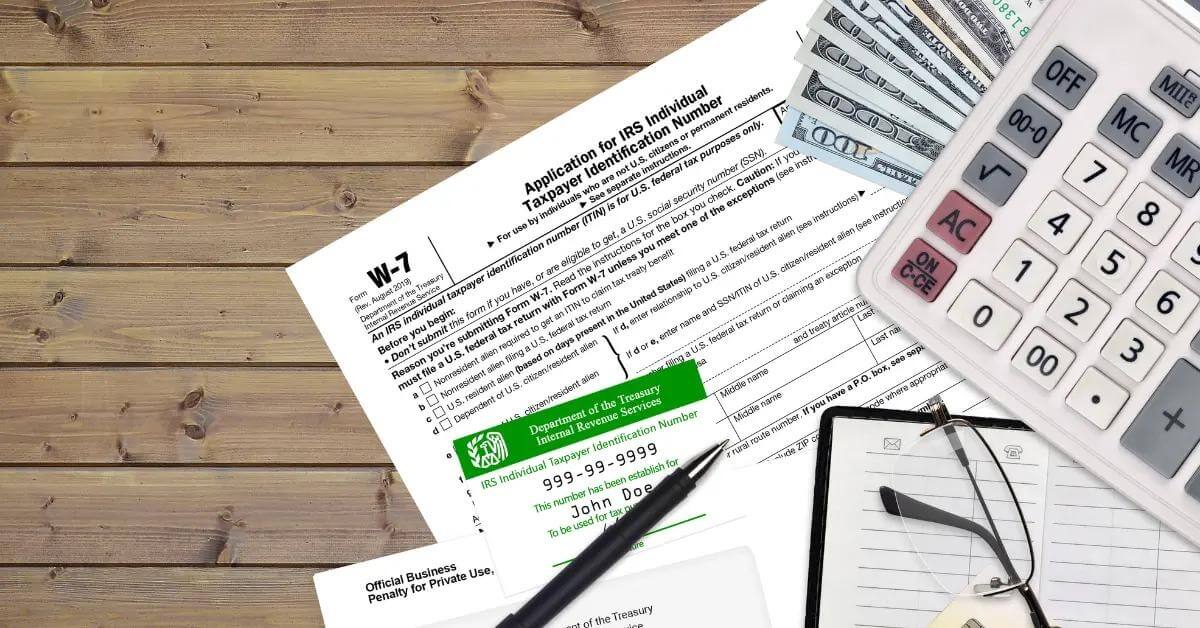Key Takeaways
- Capital gains tax is a tax on profits you make when you sell an asset, like stocks, bonds, real estate, and other property
- You only have to pay this tax on investments you sell, not those you currently hold
- Short-term capital gains tax applies to assets held one year or less and is the same as your normal income tax rate
- Long-term capital gains tax applies to assets held longer than a year, and rates are 0%, 15%, or 20%, depending on your income and filing status
- Capital gains tax must be paid in the same year the asset was sold
- Collectible assets may have a different capital gains tax rate
- You can use capital losses to offset your income, helping lower your tax burden
Many Americans understand the benefits of investing in the stock market, real estate, or other types of assets that increase in value. Over time, these investments may gain capital and can see significant profits when sold at a later date. Investing is a smart way to earn money, especially in the long run.
A major component of investing, however, is understanding the tax implications. These profits are considered income, so they’re taxed, just as regular income from a job is taxed. However, capital gains are subject to different rates and regulations set by the IRS.
This guide will walk through how capital gains tax works, rates to know for 2023 and 2024 tax years, 10 frequently asked questions with in-depth answers, and extra tips many taxpayers may miss when figuring out their capital gains tax obligation.
What Is Capital Gains Tax?
Let’s start by going over a simple capital gains tax definition. It’s a tax on profits made when an investor sells an asset. The gain amount, and the tax on it, depends on how much that asset appreciated while the investor held it. Capital gains tax must be paid for the same tax year when the investor sold the asset.
The difference between the sale price and the original purchase price is the number used to calculate the tax amount. Capital gains tax is paid on investments that are considered capital assets, like stocks, bonds, cryptocurrency, NFTs, real estate, jewelry and gems, metals (like gold and silver), furnishings in your home, and other property.
You only have to pay capital gains tax on asset gain you sell, meaning they’ve been “realized.” Unrealized capital gains, or those that accrue on unsold investments, aren’t subject to capital gains tax.
You’ll first use Form 8949, Sales and Other Dispositions of Capital Assets to report capital gains or losses. You’ll then put that information on Form 1040, Schedule D, Capital Gains and Losses when you file your tax return.
What Is the Capital Gains Tax Rate?
The tax rate you’ll have to pay depends on your tax bracket and can be 0%, 15%, 20% of the amount profited. Below is a summary of the tax brackets and capital gains tax rates for 2022 and 2023:
2022 Capital Gains Tax Rates
- Tax rate of 0%: Single filers with income up to $41,675; head of household up to $55,800; married, filing jointly up to $83,350; and married, filing separately up to $41,675
- Tax rate of 15%: Single filers with income from $41,676 to $459,750; head of household from $55,801 to $488,500; married, filing jointly from $83,351 to $517,200; and married, filing separately from $41,676 to $258,600
- Tax rate of 20%: Single filers with income over $459,751; head of household over $488,501; married, filing jointly over $517,201; and married, filing separately over $258,601
2023 Capital Gains Tax Rates
- Tax rate of 0%: Single filers with income up to $44,625; head of household up to $59,750; married, filing jointly up to $89,250; and married, filing separately up to $44,625
- Tax rate of 15%: Single filers with income from $44,626 to $492,300; head of household from $59,751 to $523,050; married, filing jointly from $89,251 to $553,850; and married, filing separately from $44,626 to $276,900
- Tax rate of 20%: Single filers with income over $492,301; head of household over $523,051; married, filing jointly over $553,851; and married, filing separately over $276,901
The majority of taxpayers won’t have a rate over 15%. These rates only apply to gains on sold assets that were held for more than one year, also known as long-term capital gains. Find out if your capital gains qualify, and at what rate, by working closely with a tax professional.
10 FAQs About Capital Gains Tax
Paying capital gains tax is just part of profiting off assets and investments. The IRS has implemented many rules and guidelines around this kind of tax, and those rules may change from year to year. Here are 10 frequently asked questions concerning capital gains tax to help you keep up:
1. Does Capital Gains Tax Apply for All Investments?
It depends on the type of gains and when assets are sold. There are both short- and long-term capital gains taxes. Long-term tax applies to investments owned for at least a year, and short-term tax applies to investments held for a year or less. The tax is only due after the investment is sold.
2. How Does the Short-Term Capital Gains Tax Work?
The short-term capital gains tax rate is different from the long-term tax. The investor’s regular income tax bracket applies to short-term capital gains, which is usually higher than the capital gains tax rate unless a taxpayer is in the highest bracket. Federal income tax rates for 2022 are 10%, 12%, 22%, 24%, 32%, and 35%, depending on income amount and filing status.
3. Do I Have to Pay Capital Gains Tax on Assets I Keep for a Long Time?
You don’t have to pay capital gains tax on assets until you sell them, no matter how long you hold them or how much their value increases while you own them.
4. Does It Benefit Me to Hold Assets Longer?
Yes, it typically does. You don’t have to pay capital gains tax on investments until you sell them. You also avoid having to pay a higher tax rate on short-term capital gains if you keep assets for more than a year.
5. How Do I Calculate the Tax Based on Capital Gains and Capital Losses?
Your capital losses from the sale of assets can be subtracted from your capital gains. This number determines your capital gains tax. Make sure short-term and long-term capital gains are kept separate from each other.
6. When Do You Have to Pay Capital Gains Tax?
You pay the tax for the year you sold the asset. For assets you sold in 2022, for example, you need to report that sale on your 2022 tax return you file in early 2023 – and pay the tax in the same year.
7. Can Capital Losses Offset My Income for That Year?
Yes. You may be able to offset your normal income if your capital losses are more than your capital gains. This is called a net capital loss. Single filers can offset their income by up to $3,000, and joint filers can offset up to $1,500. Losses over these amounts can be transferred to future tax years to further offset regular income.
8. Do I Have to Calculate Capital Gains Tax Myself?
No, you don’t have to do the calculations on your own. You can either work with a tax professional or use a tax software that takes care of calculations for you based on the income and profit information you provide. You can use software or a capital gains calculator to figure your tax for sales you’ve completed or are considering in the future.
9. Is It Possible to Avoid Capital Gains Tax?
Keeping your assets for as long as possible helps you avoid the tax and minimize your burden when you do decide to sell. You can also invest your money in accounts that defer taxes until you make withdrawals, such as including:
- Certain retirement accounts, like 401(k)s
- 529 college savings accounts
10. How Can I Minimize Capital Gains Tax on My Home Sale?
It’s possible to lower your tax when you sell your home. Single filers can legally exclude up to $250,000 in gains, and joint filers can exclude up to $500,000. To qualify, you need to have owned the home for at least two years within the last five before selling it, and it must be your primary residence. You can’t have excluded another home from capital gains tax in the last two years before selling.
Do plenty of research when you’re figuring out your capital gains tax responsibility on a realized or upcoming sale. You never want to fail to report this kind of income or calculate your tax incorrectly. Get help from a tax expert when you’re uncertain.
What to Watch for When Paying Capital Gains Tax
Smart investors take into account IRS guidelines, information about the market, and their own financial situation to come up with the best strategy for selling assets. Many people, however, may run into roadblocks when they don’t fully understand how capital gains tax works. Here are some tips about what to watch for when you’re dealing with capital gains:
Some Assets Have Different Rates
The capital gains tax rate may differ for certain types of assets. Collectible assets, like coin collections, art, or antiques, have a 28% maximum tax after a sale if it’s a long-term capital gain. Make sure to research the type of asset you’re dealing with.
Net Investment Income Tax May Apply for High-Earners
You may have to pay an additional tax of 3.8%, known as the net investment income tax, based on these income thresholds: $200,000 for single and head of household filers; $250,000 for joint filers; and $125,000 for those who are married and filing separately. This tax applies to either your net investment income or the amount your modified adjusted gross income exceeds the above income thresholds, whichever is smaller.
When You Sell Matters
Remember you’ll get tax benefits if you keep your investment longer than one year. Pay close attention to the date you bought an asset. Just a few days of waiting to sell can make a big difference. There are other factors to consider, too, like your other tax obligations for a given year and the amount your asset has increased in value since you bought it.
Use Capital Losses to Your Advantage
Capital losses can offset gains to help you lower your tax responsibility. Sometimes you may have more losses than gains, which isn’t always a bad thing. Remember you can offset your income if your losses are more than your gains by up to $3,000.
Preparing for capital gains tax will help ensure you don’t have any surprises arise when you’re filing and paying your taxes. Carefully consider your unique investment portfolio and financial situation when you’re selling assets and calculating your potential tax obligation for the year.
Contact Silver Tax Group With Questions
Paying capital gains tax involves many moving parts. You want to ensure you’re minimizing your tax responsibility while following all applicable laws and regulations. You’re probably dealing with a lot of other concerns related to taxes, too, especially if you have a lot of investments or run a business.
The team at Silver Tax Group is here to help. We can walk you through everything you need to know about capital gains tax and help you file your return properly. We also provide emergency tax help, tax debt resolution, tax defense, and other services to meet whatever tax need you have. Reach out to Silver Tax Group to speak to a tax expert about capital gains tax and your investments.








